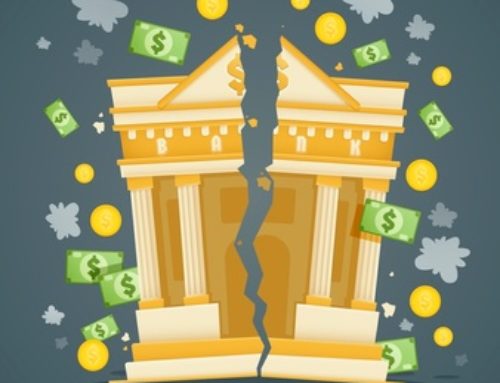
If you’ve been having financial problems and need help getting them under control, chances are you’ve heard of filing for bankruptcy. But if you’re not familiar with the process of filing for bankruptcy, don’t worry; it’s not as scary as it sounds. You will be unable to make sense of it all on your own.; you need to hire an experienced bankruptcy attorney.
What Is Chapter 13 bankruptcy?
Alternatively, a chapter 13 bankruptcy is referred to as a wage earner’s plan. It allows people with a stable source of income to devise a strategy for repaying all or a portion of their obligations. Under this chapter, debtors submit a repayment plan to creditors, including installment payments over three to five-year periods.
Chapter 13 has a lot of benefits over chapter 7 liquidation for people. Perhaps most importantly, chapter 13 allows people to avoid foreclosure on their houses. Individuals may halt foreclosure proceedings and possibly cure overdue mortgage payments over time by filing under this law.
They must, however, continue to make all mortgage payments due under the chapter 13 plan on schedule. Chapter 13 also has the advantage of allowing people to restructure and prolong secured obligations.
This may result in a reduction in payments. Chapter 13 also has a unique clause that protects third parties jointly and severally responsible for “consumer debts” with the debtor. This clause may protect co-signers.
Finally, chapter 13 operates similarly to a consolidation loan, with the person making plan payments to a chapter 13 trustee, who subsequently distributes funds to creditors. Individuals seeking chapter 13 protection will have no direct interaction with creditors.
How do I get started with chapter 13?
Confirm that Chapter 13 is the appropriate option.
The majority of people file for bankruptcy under Chapter 7 or Chapter 13. Both have distinct characteristics that aid filers in resolving specific issues. For example, a Chapter 13 bankruptcy allows you to make up missed home loan or vehicle payments of loan and avoid a house foreclosure or automobile seizure. The bankruptcy Chapter 7 does not have a comparable provision.
Conduct a debt analysis.
When your credits are too large, you may be unable to qualify. Chapter 13 imposes limitations on the debt amount that you may owe. Additionally, some obligations, for example, taxes, home loans, and arrears alimony, must be fully paid within the 3-5 year payback schedule.
If you lack the financial means to comply with the necessary payment, you may not offer a viable plan.
Calculate the current market value of your property.
Before filing, you will need to determine how many properties you possess and how many of them are exempt from bankruptcy. While you retain ownership of all real states, you must pay some creditors value equivalent of the worth of your non-exempt property.
You’ll include the value of non-exempt property in the Chapter 13 bankruptcy plan payment.
Determine your revenue.
Your income must meet your monthly living costs, any debts included in your plan, and the value of any non-exempt property you want to retain. If you do not have sufficient money, the court will not allow you to continue.
Complete the bankruptcy paperwork.
After determining your eligibility, you must input your financial information into formal bankruptcy papers and create a repayment plan.
Complete the mandatory pre-filing training.
Individuals filing for bankruptcy must first complete a credit counseling course. When you’re finished, you’ll get a certificate to provide with your bankruptcy papers.
Submit your forms and pay the applicable cost.
Once you’ve verified and prepared everything, it’s time to submit your paperwork, certificate, and plan with the bankruptcy court to begin the process. Additionally, you’ll pay the bankruptcy filing cost.
Provide documentation to the trustee establishing your income and other assets.
The facts included in your official papers are cross-checked against bank statements, pay stubs, and tax returns, among other documents, that you will provide after your filing.
Appointment to two hearings.
You’ll meet with the bankruptcy trustee assigned to handle your case at the 341 meeting of creditors within a few weeks after filing. The trustee will review your identity, official documents, payback plan, and supporting evidence. Creditors are also welcome to attend and ask questions (but rarely do).
Immediately after this meeting, you or your attorney will go before a bankruptcy court for a confirmation hearing during which the judge will determine whether to approve (confirm) your plan.
Before it, a creditor may protest by filing a judicial objection. The judge will determine whether to affirm the proposal after reading written complaints and considering any arguments offered at the hearing.
Pay your bills.
Within 30 days, you must start making payments underto your repayment plan. If you do not make your payments on time, the court will dismiss your case.
Attend the post-filing seminar.
You’ll want to attend the second mandatory class—the debtor education course—and submit the certificate before finishing your repayment plan.
Obtain a discharge from bankruptcy.
After finishing your plan, you will be discharged from bankruptcy. The discharge absolves you of any responsibility to repay any outstanding amount on qualified unsecured obligations (some unsecured debts, such as student loan arrears, are not dischargeable). As long as you’ve made the payments specified in the plan, you’re finished. Congratulations!
You may anticipate following all of these procedures; nevertheless, circumstances may occur that need you to return to court. For example, if your income decreases, you may be able to petition the court for a reduction in your payments.
When to retain the service of a chapter 13 bankruptcy attorney?
A chapter 13 bankruptcy lawyer can make sense if you have a low income, are behind on your mortgage payments, or are in perks of foreclosure. If your income is above the median, you will probably have to hire an attorney to handle your case.
Chapter 13 bankruptcy is a lengthy legal procedure, and you won’t be able to do it independently. The law requires that you attend some courses before filing bankruptcy, and bankruptcy attorneys teach these courses. Chapter 13 bankruptcy lawyers are also required to take an ethics course.
Another important reason is if creditors are harassing you. Debt collectors have all kinds of tricks to get money out of people: threats, intimidation, lawsuits, garnishments, foreclosures, repossessions, and the list goes on. Debt collectors have a lot more tricks than the average citizen has.
But the debt collector’s main power is a delay. And they do it with legal tricks. You can hire a lawyer to fight back. Contact Northwest Debt Relief Law Firm today to find out if Chapter 13 bankruptcy is right for you. NWDRLF has bankruptcy lawyers ready to help. We help people file for bankruptcy relief. We are serving the Cities of Portland, Salem, and Medford, and the Surrounding Areas.
Got Debt? Consult a Chapter 13 Bankruptcy Attorney Today!
After reading this essay, you should know more about Chapter 13 bankruptcy. This form of bankruptcy is meant for individuals and businesses to recover from debts they cannot pay. With the proper guidance and help, filing for bankruptcy can help you get out of financial trouble. Schedule a consultation with a Portland bankruptcy lawyer today!.









